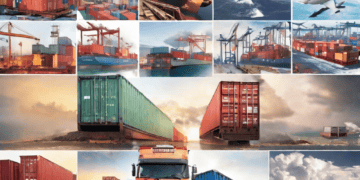In recent years, the global landscape of trade and economic cooperation has faced significant challenges, long before the onset of the COVID-19 pandemic. The protectionist wave that has been sweeping across nations raises questions about the future of globalization. US President Donald Trump, during his tenure, made headlines by adopting protectionist policies, such as imposing tariffs on steel and aluminum imports under the banner of ‘national security,’ initiating a trade dispute with China, and undermining the WTO Appellate Body. However, it’s important to note that Trump was not alone in his critique of the global trading system.
The trend of protectionism had been evolving since the Global Financial Crisis (GFC) in 2008. Despite G20 leaders’ repeated assurances of avoiding new trade restrictions, the Global Trade Alert’s documentation revealed that almost every G20 country had consistently added new trade restrictions over the past decade. This trend accelerated as the years passed.
Trade restrictions were not the sole focus of anti-globalist policies; foreign direct investment (FDI) also encountered barriers. In 2017, the United States shifted its longstanding policy on inward and outward FDI, raising concerns about outsourcing jobs. The Foreign Investment Risk Review Modernization Act of 2018 imposed strict reviews on foreign multinational corporations (MNCs), particularly those of Chinese origin, investing in the United States.
However, amidst these challenges, there were some positive developments in the global economic landscape during the anti-globalist decade from 2009 to 2019. Initiatives like the Comprehensive and Progressive Agreement for Trans-Pacific Partnership (CPTPP) and the Regional Comprehensive Economic Partnership demonstrated efforts to strengthen international trade cooperation. The European Union successfully negotiated major trade agreements with Canada and Japan, and China also signed trade pacts with South Korea and various other bilateral free trade agreements were established.
Yet, these positive strides were overshadowed by negative developments such as Brexit, the reconfiguration of NAFTA, and the limited impact of Trump’s phase one trade deal with China. During this period, merchandise trade grew at a rate of 56%, only slightly outpacing the 40% growth in world GDP between 2009 and 2018. Additionally, annual FDI inflows declined from $1.8 trillion in 2007 to $1.3 trillion in 2018.
Then, the COVID-19 pandemic struck, further exacerbating concerns about protectionism. Lockdowns and travel restrictions became widespread, disrupting global supply chains. Many countries imposed export restrictions on essential medical supplies, compounding the challenges faced by the global economy.
The economic repercussions of these protectionist responses are expected to be substantial. While protectionism may serve certain political objectives, it comes at an economic cost. Hoarding of essential goods and supply shortages can harm local communities and hinder access to vital resources, particularly in less developed countries with fragile healthcare systems.
Addressing these challenges is not straightforward. The weakened state of the World Trade Organization (WTO) and the questionable effectiveness of the G20 in maintaining open markets present hurdles to meaningful action. Although the G20 leaders made commitments in their joint statement to implement emergency measures that are transparent and temporary during the pandemic, significant doubts remain.
One potential solution lies in bilateral truce agreements. Given its nascent economic recovery and a pro-globalist mindset, China could play a leading role in this regard. Bilateral truce agreements would involve commitments not to restrict exports to partner countries, temporary suspension of trade remedies, and a focus on fostering inward and outward foreign direct investment.
Furthermore, establishing a “trusted traveler” protocol, allowing individuals free of the virus to travel between partner countries, could facilitate economic cooperation during the pandemic. Plurilateral cooperation among groups like ASEAN+6 could also deter new trade restrictions, although it may take time to implement.
In conclusion, the global landscape of trade and economic cooperation faces numerous challenges, with the COVID-19 pandemic intensifying concerns about protectionism. While multilateral institutions like the WTO and the G20 have limitations in addressing these challenges, bilateral truce agreements and regional cooperation could provide a path toward mitigating the impact of protectionist measures and promoting global economic recovery.
Breaking supply chain news is just a click away at The Supply Chain Report. Enhance your knowledge of international trade at ADAMftd.com with free tools.
#GlobalTrade #Protectionism #EconomicCooperation #TradeRestrictions #Globalization #FDI #CPTPP #RCEP #Brexit #NAFTA #PhaseOneTradeDeal #ChinaTrade #EUTradeAgreements #GlobalSupplyChains #COVID19Impact #TradePacts #WTO #G20 #BilateralTruce #TrustedTravelerProtocol #ASEAN #EconomicRecovery #TradePolicy #ForeignInvestment

















